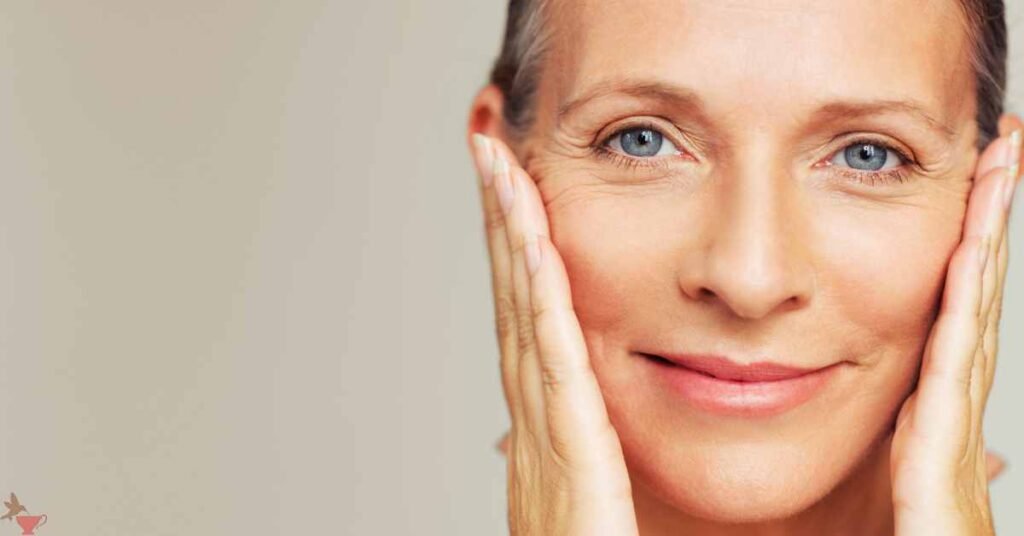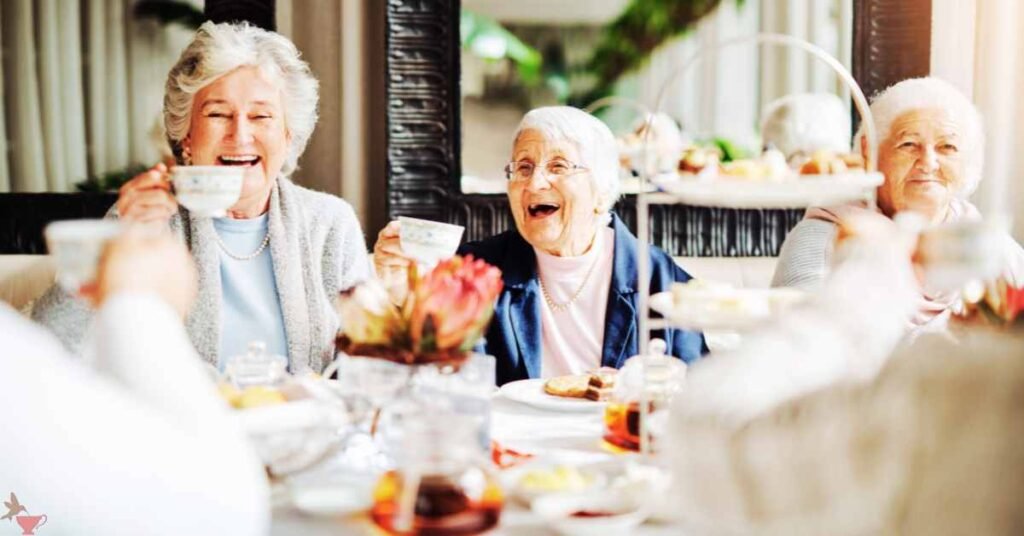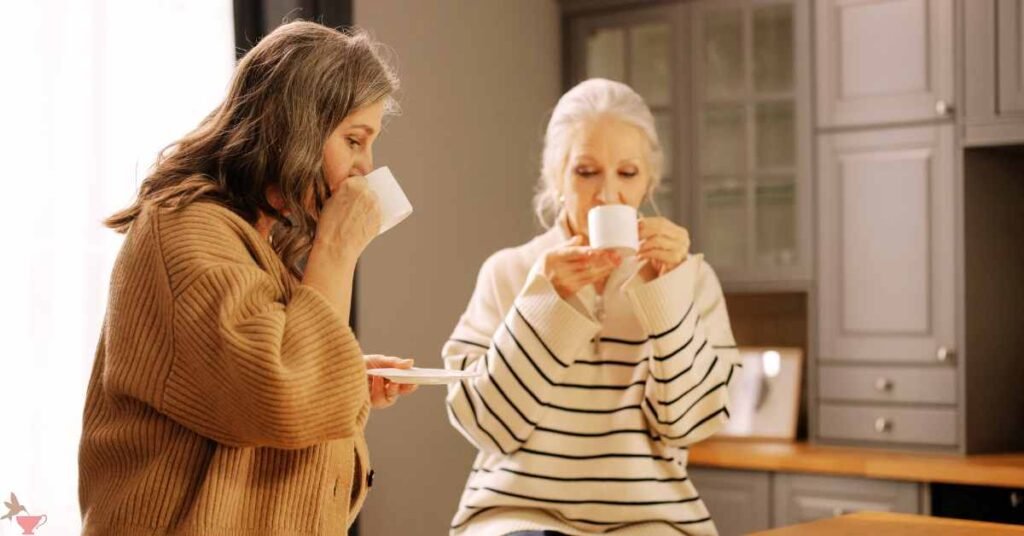Biological aging is a natural process that affects all living organisms, including humans.
As we age, our bodies undergo various changes at the cellular and molecular levels, leading to the decline of physiological functions and an increased risk of age-related diseases.
The quest for eternal youth and the desire to slow down the aging process have captivated human imagination for centuries.
While the fountain of youth remains elusive, there is growing interest in exploring the potential anti-aging effects of everyday beverages.
Among these, tea has emerged as a popular contender.
Could something as simple as sipping tea every day hold the key to defying the ravages of time?
In this article, we delve into the tantalizing world of tea to uncover whether it has the power to stave off biological aging, examining the science behind these claims and exploring the intriguing secrets that tea holds.
Types of Tea and Their Age-Defying Potential

Tea, in its myriad forms, has been cherished and consumed across cultures for centuries.
From the delicate green tea to the robust black tea, each variety possesses its own distinct flavors and characteristics.
Let’s explore some of the most popular teas and their potential benefits in the battle against aging:
- Green Tea: With its vibrant green hue and fresh flavor, green tea has long been celebrated for its health-promoting properties. Packed with powerful antioxidants called catechins, green tea sweeps through the body, neutralizing harmful free radicals that contribute to cellular damage and aging. Studies have suggested that the regular consumption of green tea may offer protection against chronic diseases such as heart disease, cancer, and neurodegenerative disorders, potentially slowing down the aging process.
- White Tea: The delicate and subtle white tea is the least processed of all teas, making it a treasure trove of age-defying compounds. Laden with antioxidants, including catechins and flavonoids, white tea lends a helping hand in shielding our cells from free radical damage. Furthermore, research indicates that white tea may help improve skin health and guard against age-related ailments, adding to its anti-aging allure.
- Black Tea: Bold, robust, and steeped in history, black tea boasts a distinct flavor profile. While it undergoes a more extensive oxidation process than green or white tea, it still harbors compounds that offer potential anti-aging benefits. Theaflavins and thearubigins, formed during the oxidation process, lend black tea its unique properties. These compounds have been associated with reducing inflammation and promoting heart health, potentially playing a role in the battle against aging.
- Oolong Tea: Nestled between green and black tea, oolong tea tantalizes the taste buds with its nuanced flavors. Rich in polyphenols and theaflavins, oolong tea possesses antioxidant and anti-inflammatory properties. These attributes contribute to its potential in protecting against age-related diseases and providing a boost in the ongoing fight against aging.
Unveiling the Mysteries: How Tea Fights Aging
The secret lies in the complex interplay of bioactive compounds within tea that work synergistically to combat the aging process. Here are some of the remarkable mechanisms behind tea’s potential anti-aging effects:

- Antioxidant Arsenal: Tea is a veritable powerhouse of antioxidants, which act as shields against oxidative stress—a major culprit in aging. These antioxidants neutralize free radicals, unstable molecules that wreak havoc in our cells, thereby safeguarding against age-related damage.
- Soothing Inflammation: Chronic inflammation is a driving force behind aging and age-related diseases. Tea’s polyphenols possess anti-inflammatory properties, helping to quell the flames of inflammation and potentially slowing down the aging process.
- DNA Defenders: Tea compounds have been found to protect our precious DNA from harm caused by environmental toxins and UV radiation. By preserving DNA integrity, tea may act as a guardian against premature aging, keeping us youthful at the cellular level.
Science Explores the Tea-Aging Connection
While tales of tea’s anti-aging prowess abound, scientific studies in humans are still relatively limited.
Many of the existing studies have been conducted on animals or in laboratory settings, providing valuable insights into the potential mechanisms and benefits of tea consumption.
For example, a study published in the Journal of Nutrition found that regular consumption of green tea extract improved cognitive function and reduced markers of oxidative stress in older adults.
Another study published in the Journal of the American Medical Association suggested that habitual tea consumption was associated with a reduced risk of cardiovascular disease and all-cause mortality.
Furthermore, randomized controlled trials, considered the gold standard in scientific research, have shed light on tea’s effects on various health outcomes.
In a randomized controlled trial published in the American Journal of Clinical Nutrition, green tea extract supplementation improved skin elasticity and reduced oxidative stress in women, offering a glimpse into the potential anti-aging benefits of tea.
Final Word

While tea may not hold the key to eternal youth, it certainly offers a tantalizing glimpse into the realm of healthy aging.
Packed with antioxidants, possessing anti-inflammatory properties, and DNA-protective effects, tea shows promise in the fight against aging and age-related diseases.
Incorporating tea into a balanced and healthy lifestyle may contribute to overall well-being and potentially slow down certain aspects of biological aging.
To harness the potential benefitsof tea, it is important to savor it as part of a holistic approach to healthy living.
Moderation is key – aim for two to three cups of tea per day, brewed from high-quality tea leaves, to maximize the intake of beneficial compounds.
However, it’s important to remember that tea alone cannot halt or reverse the aging process entirely. Aging is a complex interplay of various factors, including genetics, lifestyle, and environmental influences.
In conclusion, while the fountain of youth may remain a distant dream, incorporating tea into our daily routine may offer a sip of vitality and contribute to healthy aging.
The antioxidants, anti-inflammatory properties, and DNA-protective effects of tea compounds allude to its potential in the battle against aging.
So, brew a cup of your favorite tea, savor the moment, and toast to the possibilities that tea holds in our quest for graceful aging.
MEDICAL DISCLAIMER
Itsnevernotteatime.com cannot and does not contain medical/health advice. The medical/health information is provided for general and educational purposes only and is not a substitute for professional advice.




